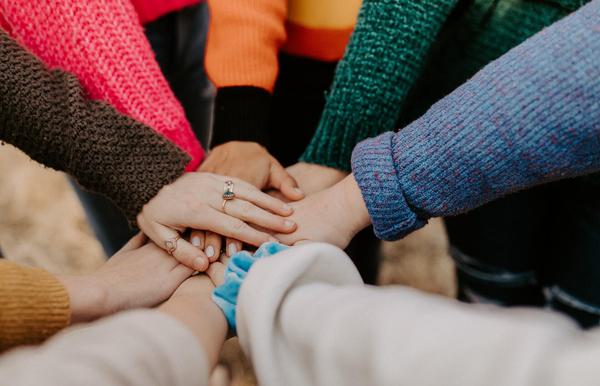Young carers face huge burdens, and their struggle often goes unseen or unsupported. How can youth leaders help them? Jen Cavendish has ten ideas.
What is a young carer?
Young Carer or Child Carer is the term given to anyone under the age of 18 who helps to look after a relative with an illness, disability, mental health condition or drug/alcohol problem. For some, they may be the only person caring, and for others they will be impacted by the needs of the other but may do little or none of what we might understand to be caring responsibilities.
How many young carers are there?
It’s hard to put a figure on it, as some teenagers may not claim they are young carers, and for others it may be a temporary role due to illness. Roughly, there are around 800,000 in the UK according to The Children’s Society. Of these, nearly 40% said they felt no one was aware they were a carer.
How can we help?
1. Acknowledge the young person’s needs. This could be physical needs like ensuring there is wheelchair access for a parent, emotional needs such as providing a space for them to talk or financial needs by recognising there may be less income if the family have limited work options. If your church has hardship funds or access to a food bank, ensure all young people are aware of how it can be accessed.
2. Ask the young person how they are, rather than focusing on how the family member is. Help them to see their value and worth in who they are, and not in their role or responsibility.
3. Think carefully about how you talk about prayer for healing, and what messages this might be giving to the young person.
4. Be aware they may have grown up with more responsibility than others of their age. Don’t rely on them to also be “the responsible one” at youth group or church. If you have capacity, try and notice what they are communicating with their behaviour – some young carers say it is important for them to have space to regress and play games aimed at those who are younger than them due to feeling they missed out on these opportunities.
5. Young Carers report poorer mental health than other teenagers, but also say that they talk to fewer people about it. Help the young people you know by providing an open and honest space to talk or signpost them to local support. Watch out for signs that they may be struggling to cope with school deadlines and the impact this might have on how they feel about themselves.
6. Be conscious of how much notice you give for events, especially if there are residential trips occurring. Keep in mind that caring responsibilities may mean that there is less capacity for a young person to go away for a weekend for example.
7. Many young carers report feeling worried about the person they care for – talk with them about how to pray together and equip them to manage this worry when they are in school.
8. There may be times when a young carer feels guilty for making time for themselves, or for taking the time of parents when there is another sibling with additional needs. As a church, promote the importance of regular rest and relaxation as a way of self-care.
9. Think of practical things which might be a barrier for the young person – attending a college open day or joining a church family lunch for example. Are there other people in the church who can support the young person with these things?
10. Talk openly as a youth group about difference and diversity. Help the group to move away from language which isn’t helpful and help them to feel empowered to offer empathy.
Above anything else, keep in mind that each young person’s experience is different, and that a long-term disability may develop over time too. Providing a space where the young person is welcome, included and valued will help to build their self-esteem and equip them for the future too.
Where else is support available?
Most local areas will have a young carers support group, and all secondary and high schools are asked to have a policy on how they support young carers. If there is capacity, consider offering a local school a young carers support group run by your church. There may also be charity led training available through charities such as The Children’s Society, Barnardo’s or Spurgeons – all three of these have supporting young carers as a priority with their local work.











